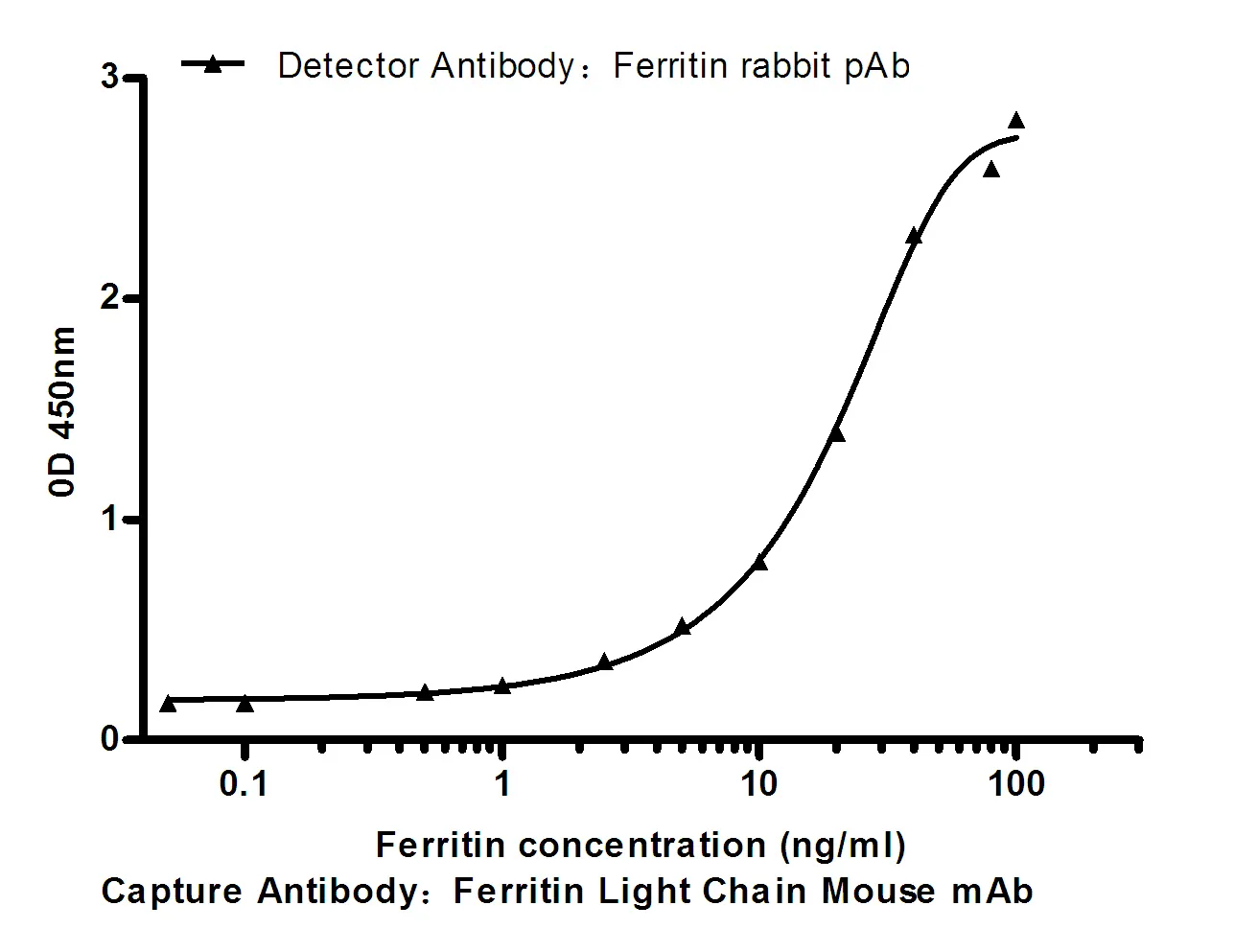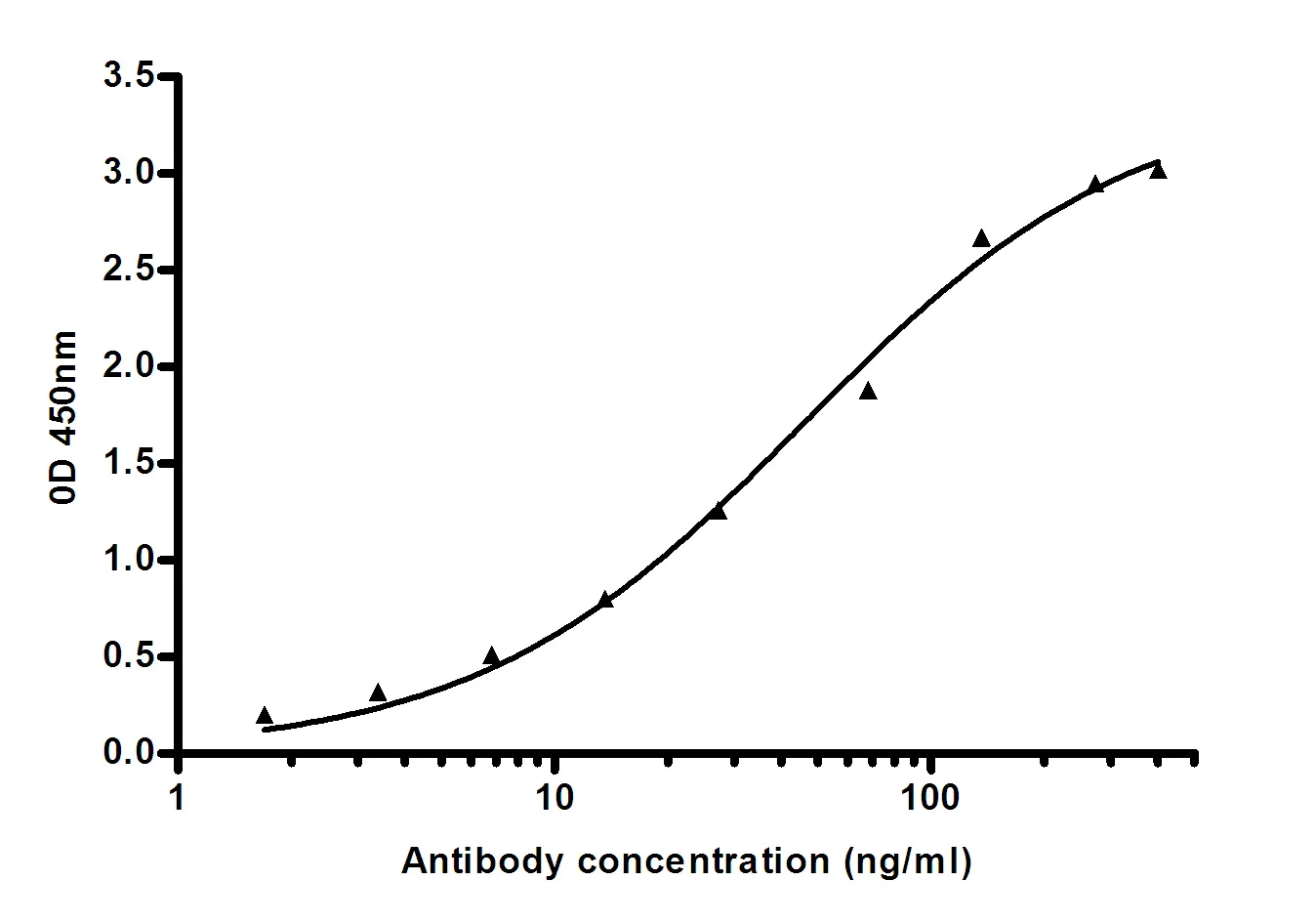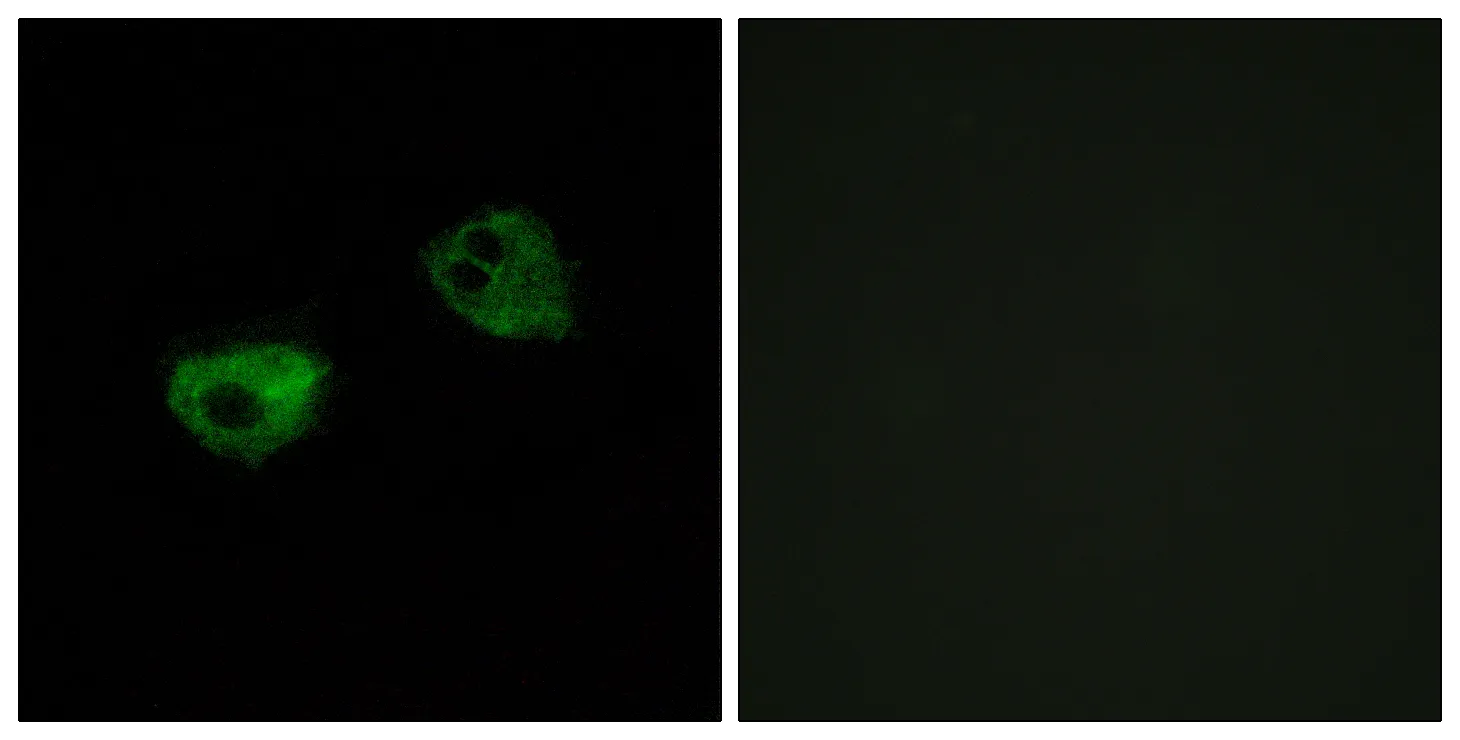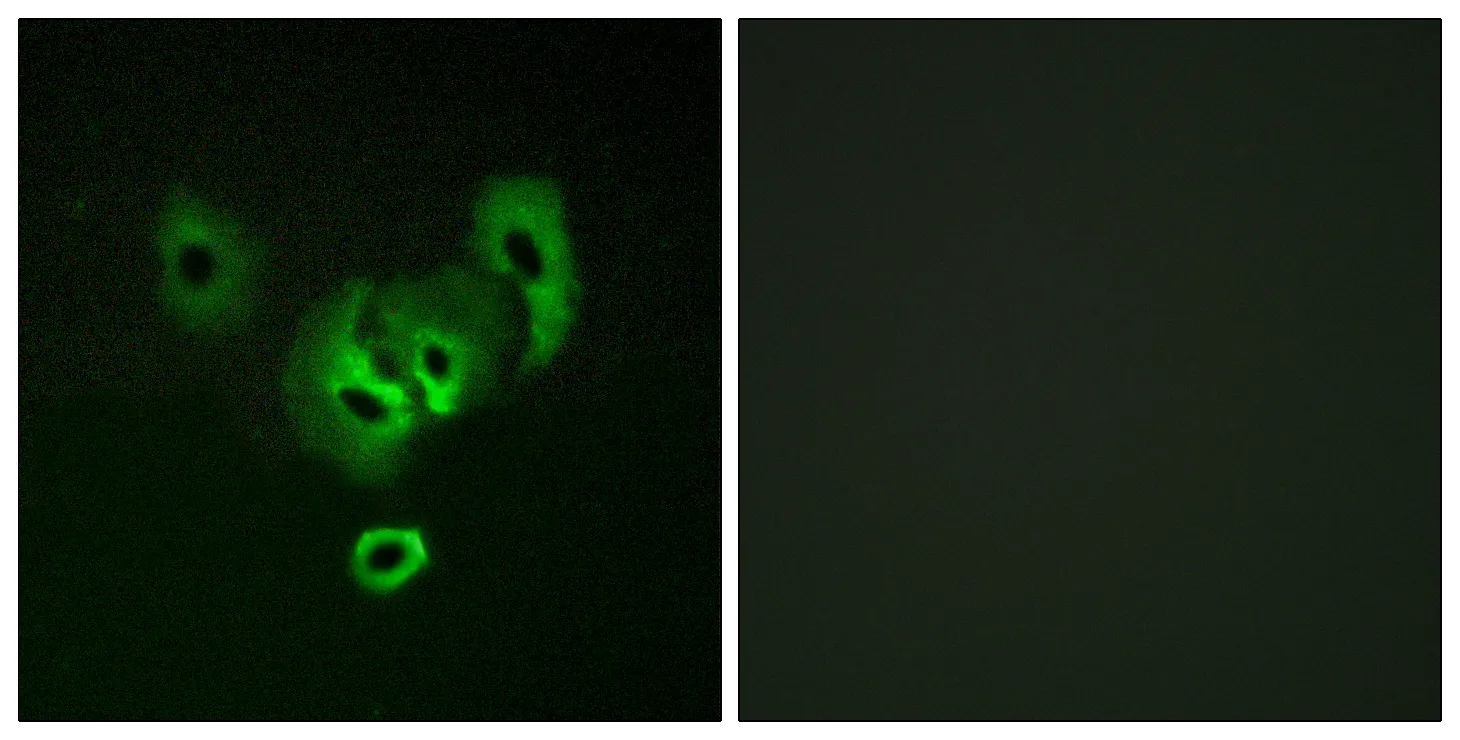Summary
Performance
Immunogen
Application
Background
The protein encoded by this gene is a beta-1,3-glucosyltransferase that transfers glucose to O-linked fucosylglycans on thrombospondin type-1 repeats (TSRs) of several proteins. The encoded protein is a type II membrane protein. Defects in this gene are a cause of Peters-plus syndrome (PPS).[provided by RefSeq, Mar 2009],disease:Defects in B3GALTL are the cause of Peters-plus syndrome (PPS) [MIM:261540]. PPS is an autosomal recessive disorder characterized by anterior eye-chamber abnormalities, disproportionate short stature, developmental delay, characteristic craniofacial features, cleft lip and/or palate.,function:O-fucosyltransferase that transfers glucose toward fucose with a beta-1,3 linkage. Specifically glucosylates O-linked fucosylglycan on TSP type-1 domains of proteins, thereby contributing to elongation of O-fucosylglycan.,online information:GlycoGene database,pathway:Protein modification; protein glycosylation.,similarity:Belongs to the glycosyltransferase 31 family.,tissue specificity:Widely expressed, with highest levels in testis and uterus.,
Research Area




